We may receive a commission when you use our affiliate links. However, this does not impact our recommendations.
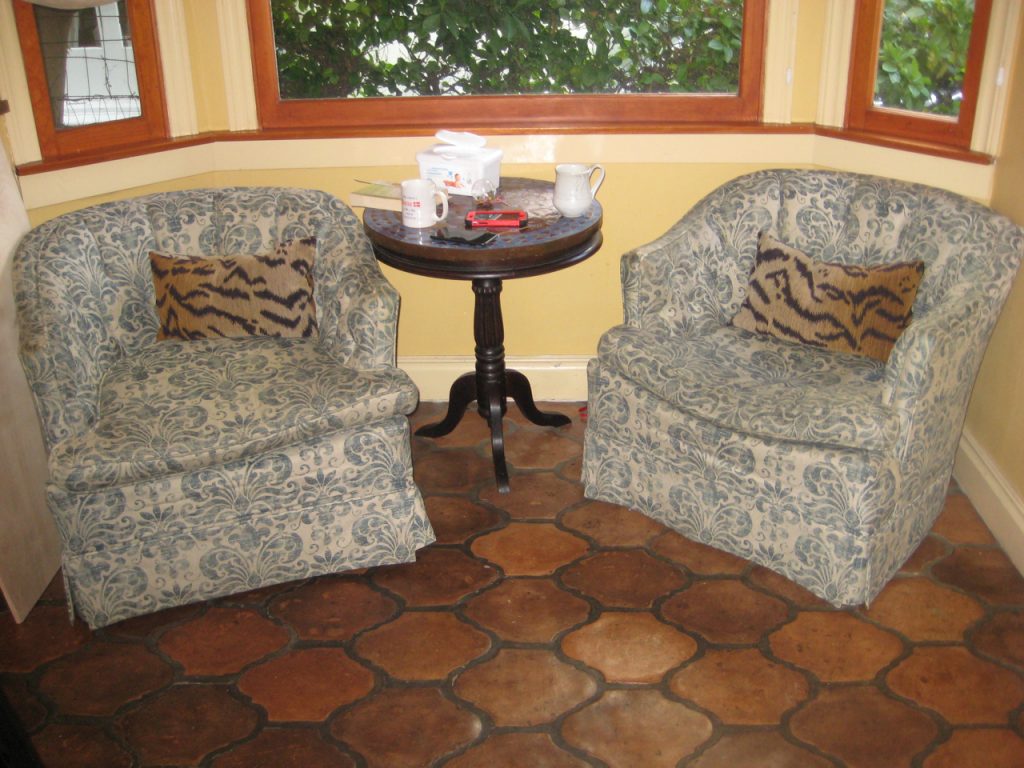
Professional upholsterer Mike Mascelli, who contributes to Popular Woodworking and also teaches at Marc Adams School of Woodworking in Indianapolis, would be horrified if he saw how I repaired two upholstered chairs over the holidays at my daughter-in-laws.
She had bought the chairs used over a decade ago because they fit perfectly in the small nook in her kitchen. The chairs are used constantly and the seats are beginning to sag quite noticeably. She has looked for replacement chairs but hasn’t found any that fit as perfectly as these. Reupholstering is, of course, the best solution, but it will cost more than she wants to spend.
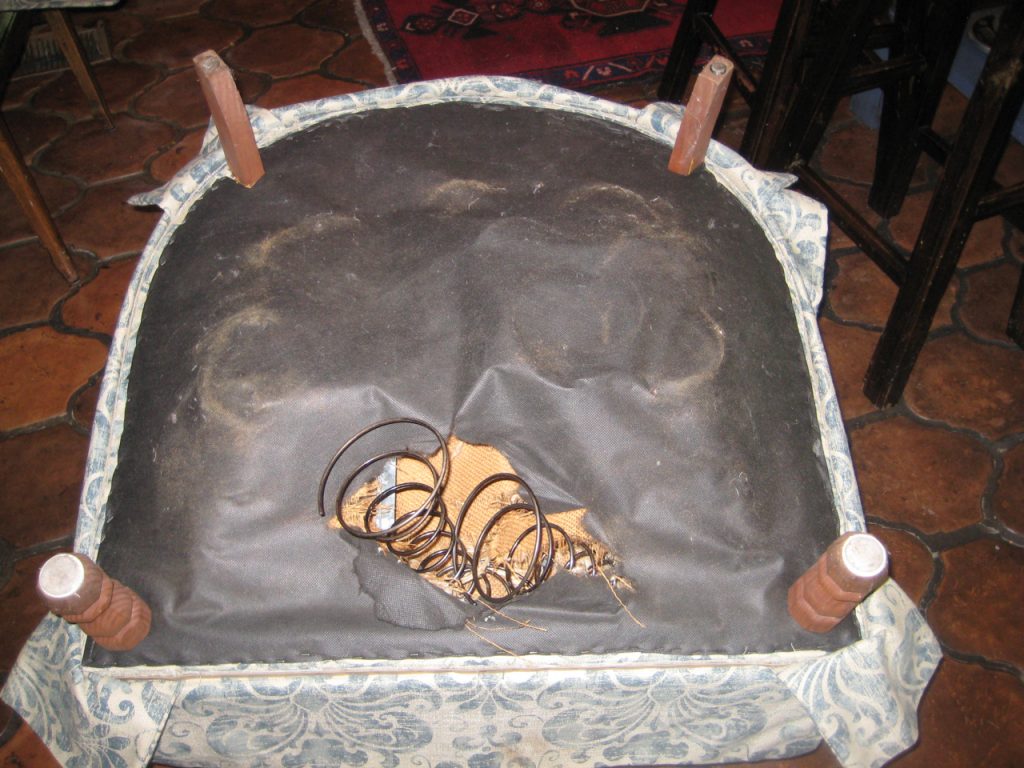
The springs had broken lose and were popping out.
So while I was there we turned the chairs upside down to size up the problem. Several of the springs had come untied (the tying didn’t appear to my unprofessional eye to have been done that well in the first place) and so they weren’t providing the support needed.
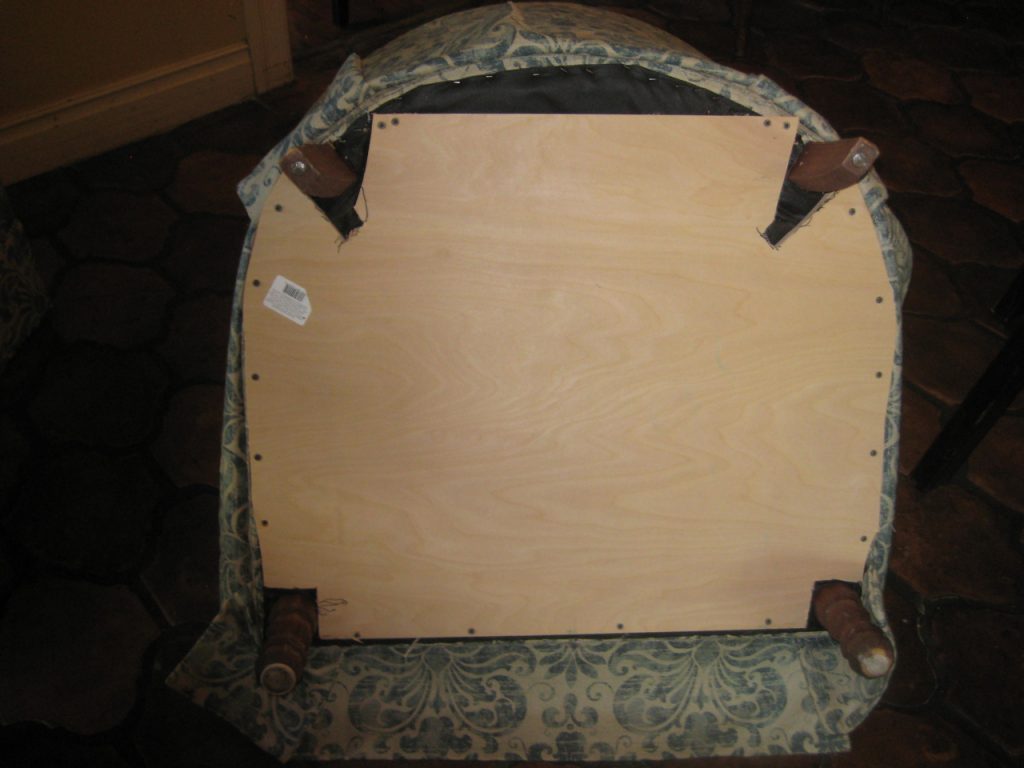
Here’s the plywood panel screwed on underneath.
Wanting to please my daughter-in-law, I proposed a very unprofessional repair of screwing a plywood panel to the underside of the chairs to push the springs back up to their supporting positions.
I used screws instead of nails because people tended to “plop” into the chairs and screws would resist coming out much better than nails.
This repair worked surprisingly well, no doubt helped by the thick cushion, and it came with the bonus of my getting to work together with my grandson. He loves working with tools. (If you’d like to see my grandson helping at a much younger age, and you have a copy of my book “Flexner on Finishing,” open it to page 40.)
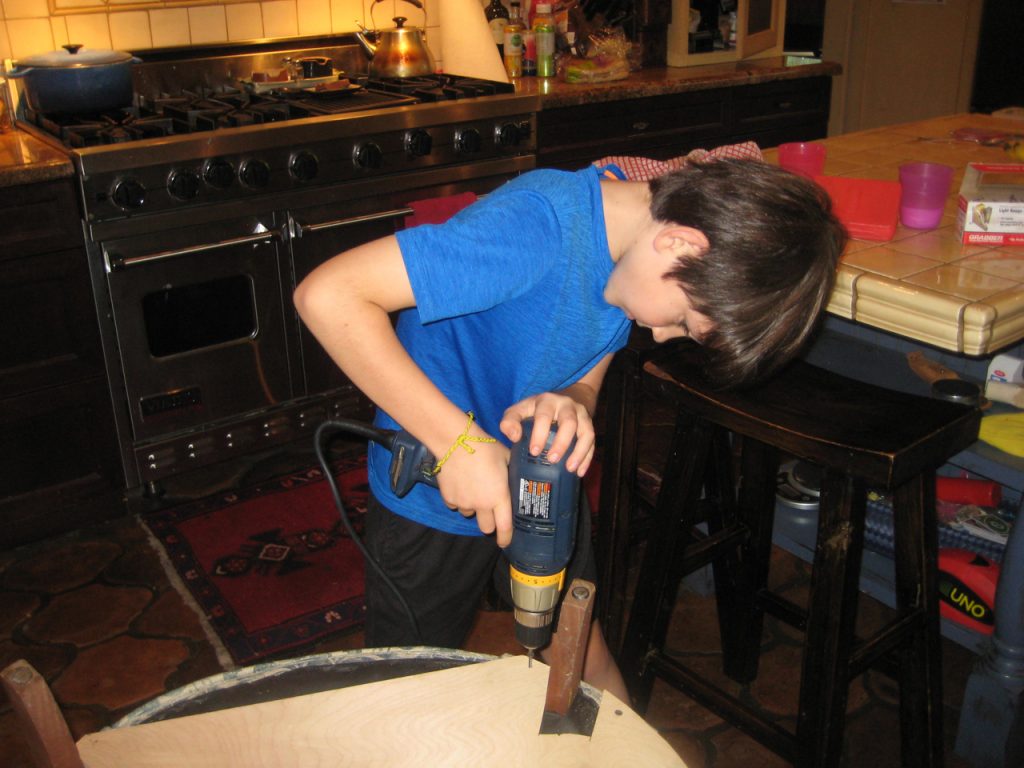
My grandson loves to help.
Here are some supplies and tools we find essential in our everyday work around the shop. We may receive a commission from sales referred by our links; however, we have carefully selected these products for their usefulness and quality.







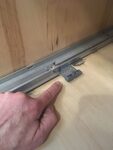
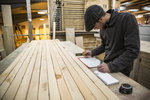
Thanks for your support. The plywood doesn’t show. Look at the top picture.
Engineering is the art of finding the best price/performance trade-off. This may not be elegant, but it’s good engineering — minimal cost, minimal effort, solves the stated problem as well as anything would, durable, and unless you deliberately go looking for it you may never noticed it. (I’d be tempted to paint the bottom and edges of that piece black to make it that much less noticable.)
Then again, I have a sofa where the fabric under the springs was replaced with an old bed sheet, n much the same principle — it was a quick, cheap fix, it does the job, and nobody cares that it isn’t the original coarser fabric.
Just call it “secondary wood” and move on to the next, more interesting, project.
That’s some fine woodworking.